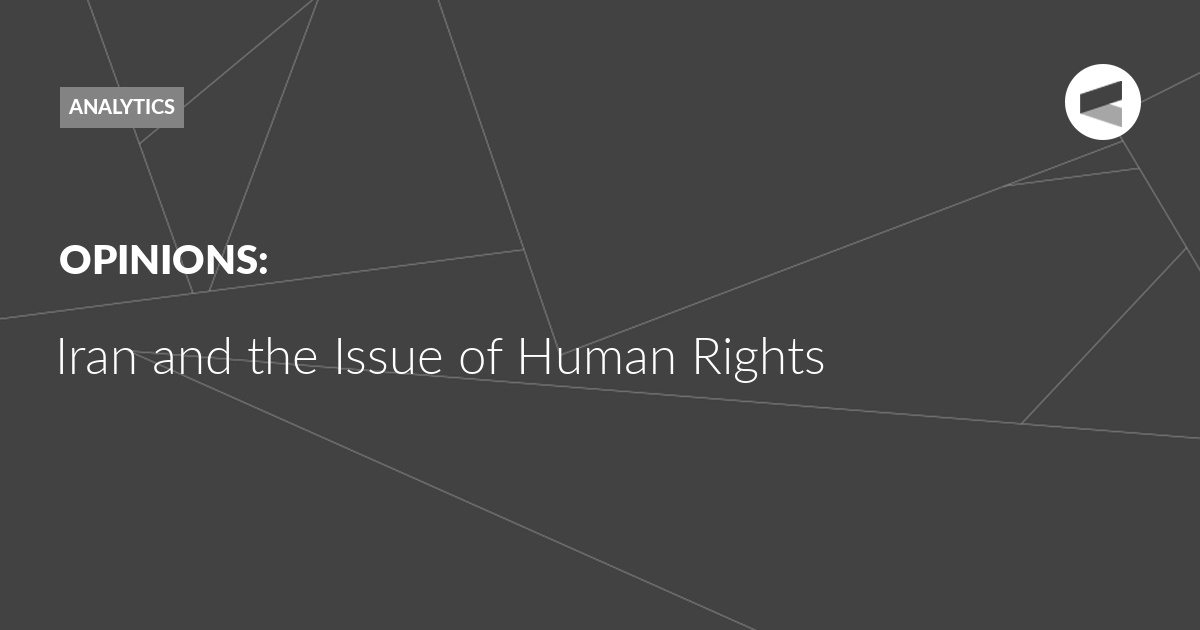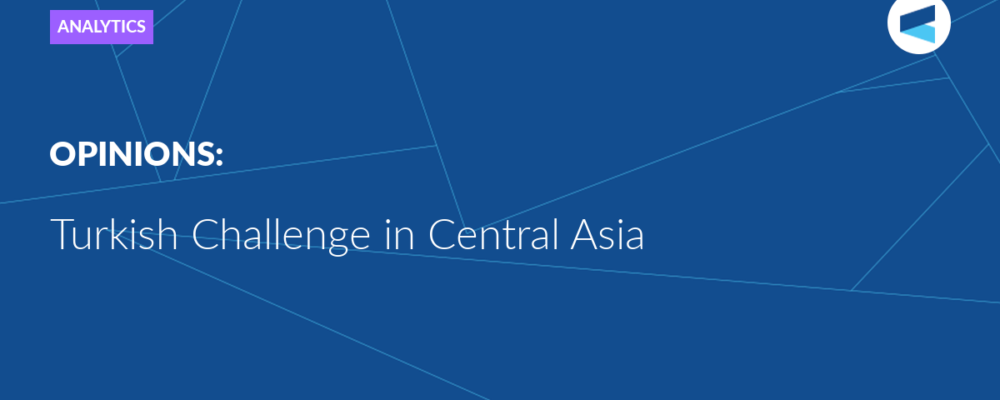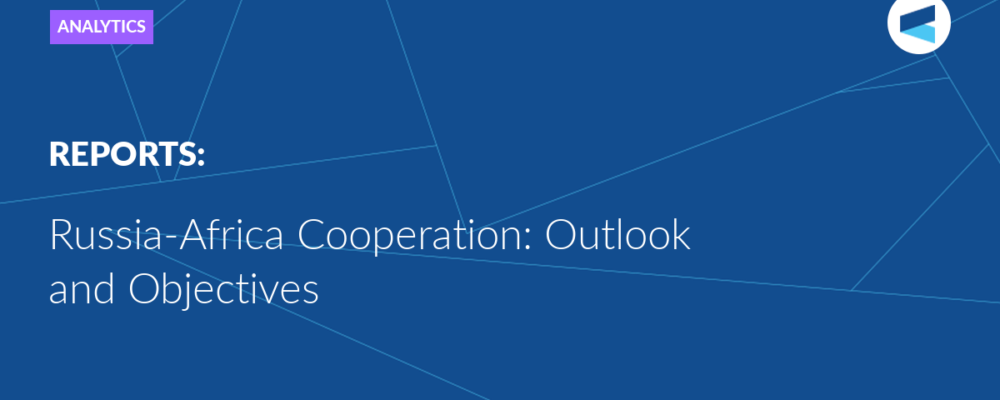The Universal Declaration of Human Rights, an important document, which everyone celebrates but mostly ignores, has both Article 16, which clearly defines the defence of the natural family, and Article 18, which determines the right to freedom of religion and its public manifestation, Misa Djurkovic writes.
In late April, Iran hosted its first conference dedicated to the Eastern Approach to Human Rights. My colleague Stevan Gajić and I were the only participants from Europe at this very interesting gathering, which was attended by scientists from over twenty countries.
Iran, in addition to being under sanctions for more than 35 years, has major problems with various Western countries and structures when it comes to human rights. The most frequent pressures come equally in connection with the issue of atomic energy and the issue of human rights.
Like many other countries, Iran has a standard problem with so-called international human rights organisations such as the UN Human Rights Committee, for example. Such organisations, which are completely under the control of corporations, globalists and their agents of influence, constantly abuse their position and put great pressure on non-European countries, asking them to implement changes geared towards accepting the LGBT
and feminist agenda, abolishing the death penalty, and rolling out everything that the Council of Europe has imposed on European countries. Of course, they have no right to do this, nor is it in accordance with the Universal Declaration of Human Rights.
Things got significantly worse last year when Iran entered into a serious row with Germany, and through it with the EU and various other European structures. Namely, in October, the Iranian authorities executed Jamshid Sharmadi, a dissident with both German and Iranian citizenship, who was probably kidnapped by Iranian special forces while in Dubai and smuggled to Tehran. He was accused by Iran of participating in a terrorist act in 2008, for which he was sentenced to death.
Iran has not officially announced where and how it captured Sharmadi, but his family has informed the public about it. In any case, several important questions have been raised here. First, it was seen that the Iranians, similar to the British, Americans and some other countries, have begun to use kidnappings or executions of radical political opponents in other countries. A previous important case was the execution of the activist Zam, who was captured in 2017 while on his way to Karbala. Second, the problems of jurisdiction over persons with dual citizenship arise. Iran believes that it has every right to apply the death penalty to those convicted by its courts of crimes meriting such a punishment, while Europeans generally fight against it, and in particular, they renounce jurisdiction over their own citizens. They accuse the Iranians of only eliminating popular dissidents, and allege that Tehran has no evidence that they committed crimes. We heard all this from Dr. Qaney from their administration, who directly participated in the work of the UN Human Rights Committee and who is exceptionally informed, for example, about the problems we have in Europe with the Istanbul Declaration.
The third level of the story is, of course, the fact that the modern, globalist, egoistic and hedonistic (Western, according to them) view of human rights, in which man is primarily reduced to sex and consumption, causes increasing discomfort in Eastern, traditionally oriented societies. In this violent political agenda, there is no place for what is most important to them: community, family, faith, patriotism and the collective.
Hence the idea of approaching the story of human rights from an Eastern perspective was born among the Iranians, in order to seek and offer an alternative vision of human rights and to lead the fight against the Western instrumentalization of human rights, or what I, following in the footsteps of Carl Schmitt, have called the politics of human rights. The conference in which we participated was conceived as the initiation of a broader platform with a secretariat, a journal and other forms of promotion of an Eastern, alternative vision of human rights.
This is a very serious project that is being implemented jointly by Baqir al-Ulum University from the Shia holy city of Qom and the State Organisation for Islamic Culture and Relations, which is the country’s main system for promoting soft power. Before this conference, a preliminary academic seminar was held, the results of which have already been published, and the creation of a special secretariat, journal and work on the development and promotion of the entire infrastructure are planned.
The basic idea is to examine whether human rights exist outside of the perspective of Western imperialism and the standard instrumentalization of this concept for the pressure and subversion of non-Western countries. In this sense, the organizers may have been a little too radical in reducing the entire Western concept of human rights to instrumentalization and to the current agenda of radical feminism and LGBT
.
My presentation attempted to show them that there is also a struggle in the West to revive a theologically based, personalist conception of human rights that is grounded in the tradition of Christian democracy, as well as Russian existentialist theological thought abroad. This trend was unified and synthesised by Jean Maritain and Charles Malik in the Universal Declaration of 1948. This important document, which everyone celebrates but mostly ignores, has both Article 16, which clearly defines the defence of the natural family, and Article 18, which determines the right to freedom of religion and its public manifestation.
After 2000, a number of very important authors appeared who tried to recall this original framework and basic conceptions of human rights, which are very conservative and theological; leftists had been working on in the opposite direction since the 1960s. Samuel Moyne has a number of extremely important books; the first one was published in 2001, in this vein, by Mary Ann Glendon: a study of Eleanor Roosevelt and human rights. It was she who was appointed by Pompeo in 2020 to head the State Department Commission, which, along with Peter Berkowitz and a number of other important lawyers and political thinkers, came up with a very valuable concept of human rights.
But even more important for the concept that the hosts imagined is the attempt of the Russian Orthodox Church to develop its vision of human rights after 2000. Therefore, I based my presentation primarily on that concept. Let us recall that the Russian Orthodox Church, as the first local church in the Orthodox world, published a document in 2000 titled The Foundations of the Social Teaching of the Russian Orthodox Church, in which a lot of space is devoted to the problem of human rights and their abuse. After that, in 2008, a special document was published under the title The Fundamentals of the Teaching of the Russian Orthodox Church on Human Dignity, Freedom and Rights. Human dignity is defined here as a theological and moral category. Otherwise, the emphasis on the East-West dichotomy and the introduction of a civilisational and cultural basis for specific concepts of social teaching and especially human rights are also a reflection of the defensive position in which the Russian people and the Russian state find themselves. The Roman Catholic Church emphasises universality much more in its teaching and sees globalisation as a process that opens the door for it to expand its influence and even for a kind of proselytism.
It is noticeable that there is an almost scholastic description of unacceptable lifestyles (life according to the laws of the flesh, life in sin, abortion, suicide, debauchery, the destruction of the family, etc.), and an insistence on the concept of responsibility as closely related to rights and freedoms. It is argued that freedom of choice is not an absolute and final value. It only makes sense if it goes hand in hand with freedom from sin. Human rights are not an absolute value, but an excellent instrument if they are brought into harmony with Christian values. So there is an awareness that they can also develop in an anti-Christian direction and that it is therefore necessary to establish an adequate Christian moral framework.
The third section of the text is very important and courageous; it clearly states that for Christians, certain types of human rights, especially when legally established, directly go against the values of Christianity and the family and are therefore unacceptable. Sexual promiscuity and the cult of violence that can be legally imposed are particularly emphasised, as well as euthanasia, embryo manipulation and abortion.
In section 3.4., a political moment is introduced when it is claimed that human rights that go against patriotism and love for the homeland and fellow human beings are unacceptable. The Russian Orthodox Church explicitly defends the right to the uniqueness of the culture and interests of each people. It is interesting that it explicitly leaves the right of each culture to determine itself on the issue of the death penalty, but it is said that it is the duty of the church to pray for the life and soul of the convicted. This is followed by detailed considerations of the relationship to freedom of conscience, freedom of thought and expression, freedom of creativity (with the emphasis that desecration of sacred places must not pass under the guise of such freedom), the right to education, civil and political freedoms, socioeconomic rights (where the task is to prevent confrontational stratification in society on a material basis) and collective rights (where the traditional family with a husband and wife, who must have the right to educate their children and pass on their religious and national cultural heritage to them, is again at the centre).
Finally, it is pointed out that today human rights and dignity are violated not only by state authorities, but also by a whole range of new non-governmental, social and economic factors such as transnational structures, corporations, pseudo-religious groups, terrorists and other criminal groups. Then, a list of about ten basic tasks that the Russian Orthodox Church sees ahead of it in the field of protecting human dignity and rights is presented. It introduces, for example, the fight against “gambling” (addiction to games, computers, etc.) and defines the task of legal expertise over legislative proposals that touch on this area, as well as the task of monitoring the implementation of such laws and the fight for the better development of church-state relations.
This concept is a good path for both the hosts from Iran and for all others who are looking for an authentic, non-Western concept of human rights.
The Valdai Discussion Club was established in 2004. It is named after Lake Valdai, which is located close to Veliky Novgorod, where the Club’s first meeting took place.
Please visit the firm link to site






